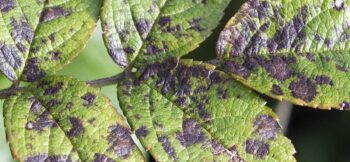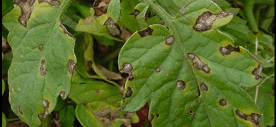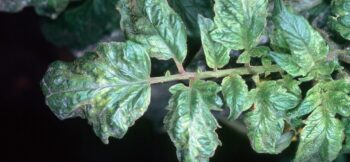
Why & How to Sanitize Garden Tools with ClO2
If you are reading this article, then you already know that not all plants are compatible for planting in the same bed, and that the plants in your greenhouse and gardens are as susceptible and less durable than are we, when it comes to being under the attack of fungal spores, bacteria and other microbes. What you may not have recognized is the role of garden tools in spreading disease and plant-destroying microbes.
Yes, Garden Tools Need to be Cleaned & Sanitized to Protect Your Greenhouse & Garden Plants
Garden tools are essential for maintaining a healthy and thriving garden. Just like you clean and sanitize your kitchen utensils, it is equally important to pay attention to the cleanliness of your garden tools. Regular sanitization eliminates harmful pathogens, prevents the spread of diseases between plants, and helps ensure the longevity of your tools. In this article, we will explore the importance of sanitizing garden tools and provide you with the best practices to keep your tools in tip-top shape.
The Importance of Sanitizing Garden Tools:
Preventing the Spread of Pathogens: Garden tools can harbor various pathogens that can be detrimental to plant health. Fungal spores, bacteria, viruses, and other disease-causing agents can easily adhere to your tools. When using contaminated tools, you risk spreading these pathogens from one plant to another, causing widespread plant infections. Regular sanitization helps eliminate these risks and ensures a healthy garden ecosystem.
Aiding Plant Health: Cleaning and sanitizing your garden tools significantly contribute to the overall health of your plants. By removing any contaminants, you prevent the introduction of harmful substances that can hinder plant growth, development, and productivity. Healthy plants are more resilient against pests and diseases, leading to more successful gardening endeavors.
Best Practices for Sanitizing Garden Tools:
- Clean Before Sanitizing: Begin the tool sanitization process by thoroughly cleaning your garden tools. Remove any dirt, soil, or plant debris using a brush or hose. Pay close attention to corners and crevices, as pathogens tend to accumulate in these hard-to-reach areas. A great product for cleaning anywhere inside or outside your house is Synergy BioClean Plus.
- How do I Choose the Right Sanitizer?: There are several effective sanitizing agents available for garden tools. We heartily recommend for your consideration our 4g Envirotab tablets in a gallon of warm water for soaking or spraying after cleaning. 3-5 minutes of wet dwell-time is sufficient.
- Should I Immerse or Should I Spray the Tools?: Depending on the tool's size, you can either immerse it in the sanitizing solution or use a spray bottle to apply the solution directly to the tool's surfaces. Ensure that all parts and blades are adequately treated and allowed to sit in the solution for at least 3-5 minutes, as already stated.
- Scrubbing and Wiping: After soaking, scrub the tool's surfaces, especially blades and cutting edges, using a stiff brush or cloth to remove any remaining pathogens or residue. Wipe down the tool with a clean cloth or paper towel or clean rag.
What Microbes Commonly Attack Garden Plants?

Plant Fungal Pathogens
Fungal pathogens are among the most common microbes that attack garden plants. Some common garden plant diseases caused by fungi include powdery mildew, rust, and various root rots. These pathogens often thrive in humid conditions and can cause wilting, discoloration, and deformities in plants.

Plant Bacterial Disease
Bacterial pathogens can also severely affect garden plants. For instance, bacterial spot, bacterial blight, and crown gall are common diseases caused by bacterial microbes. They can cause leaf spots, wilting, cankers, and often spread rapidly in wet conditions.

Plant Viral Infection
Viruses are another group of microbes that can infect garden plants, often transmitted by aphid or other insect vectors. Viral infections can cause stunted growth, leaf curling, mosaic patterns on leaves, and even death in affected plants. Common examples include tomato mosaic virus and cucumber mosaic virus.

Plant Nemotodes
Although not technically microbes, nematodes are microscopic roundworms that can seriously damage garden plants. Root-knot nematodes are particularly notorious, as they invade plant roots and form characteristic galls, hampering nutrient uptake and causing wilting.

Phytoplasmas Infestation
Phytoplasmas are specialized bacteria-like organisms that infect garden plants. They are often transmitted by insects and can cause plant diseases known as yellows. Symptoms include stunted growth, yellowing of foliage, and abnormal flower development.

P.O. Box 34 Winterport, Maine 04496
If you need more information, or are a commercial buyer, please visit this parent site.

